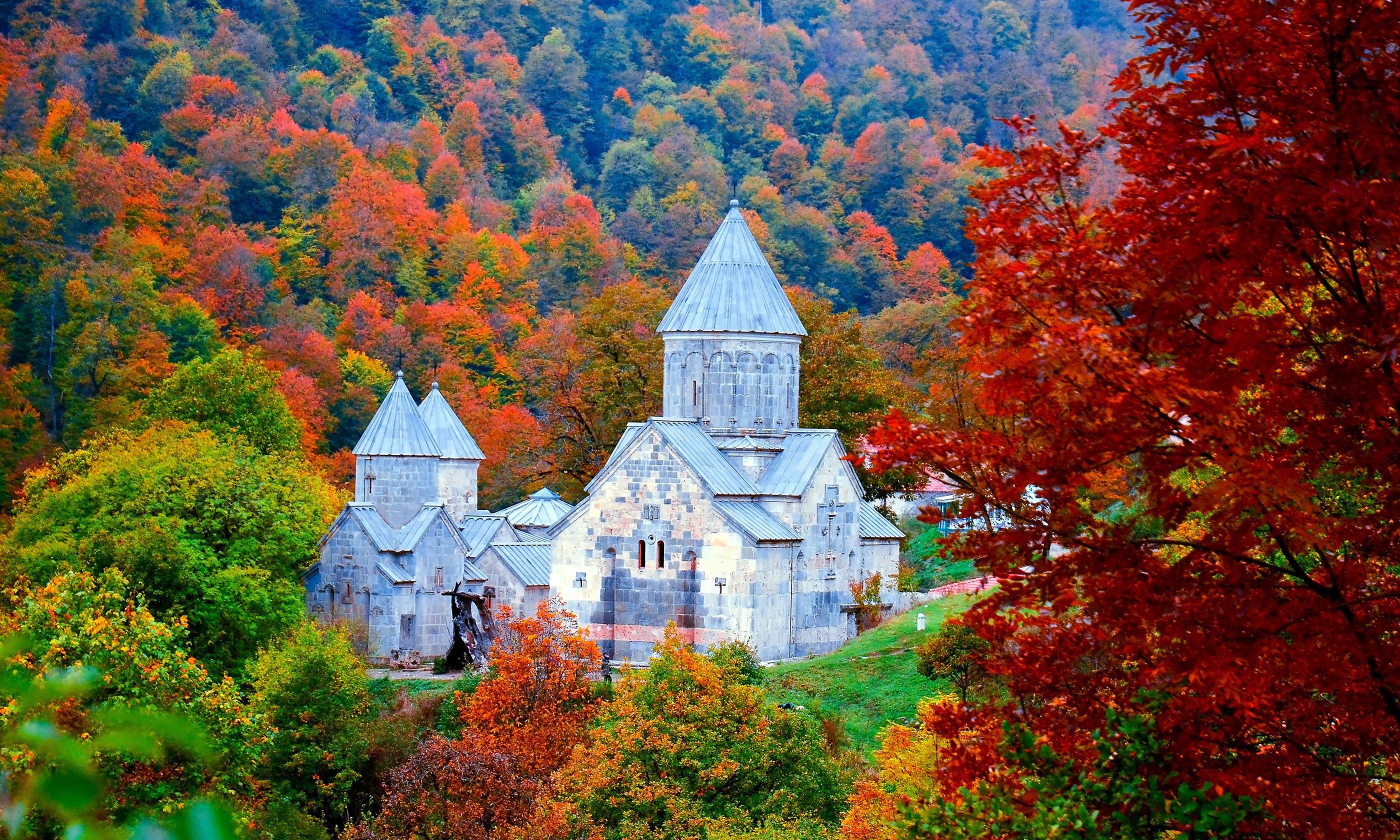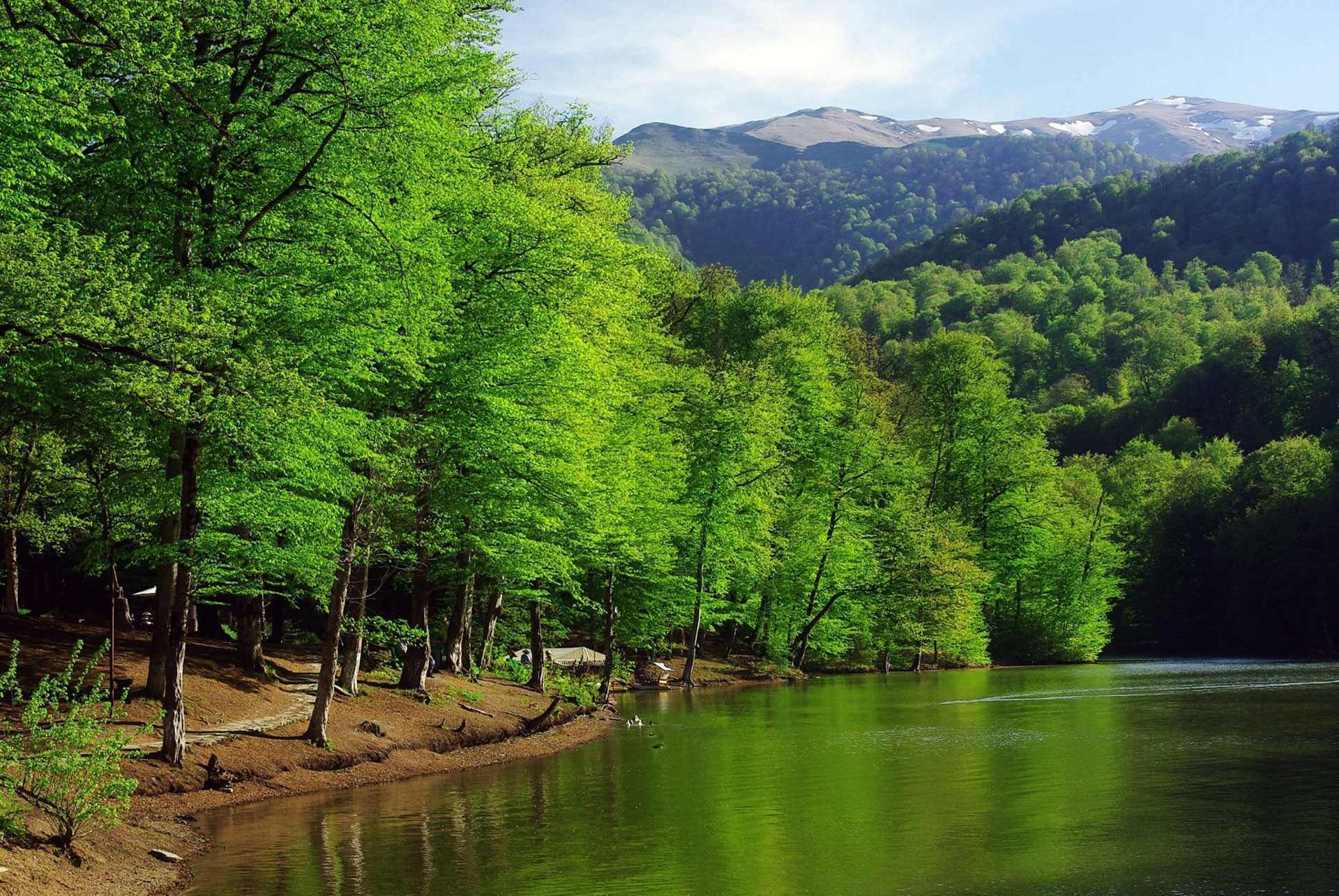



Dilijan is a town in northern Armenia. It's known for spa resorts and traditional craft workshops. The town is surrounded by the forests of Dilijan National Park. The Geological Museum and Art Gallery displays archaeological finds and international art. North of town, Haghartsin Monastery is a complex of stone churches. East, Goshavank Monastery is known for its intricate khachkars, or carved stones. ― Google
May to October: Best for hiking, nature, and sightseeing — cool summers and vibrant autumn foliage.
Winter (Dec–Feb): Snowy and quiet — great for cozy retreats and winter landscapes.
From Yerevan: About 1.5–2 hours by car or minibus (marshrutka).
Buses leave from Yerevan’s Northern Bus Station.
Scenic drive through tunnels and forested roads.
Old Dilijan Complex (Sharambeyan Street): Preserved historic street with traditional architecture, craft shops, and cafés.
Haghartsin Monastery (13th century): Hidden in the forested hills 15 km from town — peaceful and beautifully restored.
Goshavank Monastery: Near Lake Gosh, built in the 12th century by Mkhitar Gosh, a famed Armenian scholar.
Dilijan National Park: Perfect for hiking, bird watching, and picnicking in lush mountain scenery.
Parz Lake: Small, clear lake ideal for boating and walking, surrounded by forests.
Hike forest trails through the national park or to Parz Lake and nearby monasteries.
Stroll Sharambeyan Street, browse artisan workshops, or enjoy a meal in a traditional tavern.
Visit Gosh and Haghartsin Monasteries — serene, scenic, and rich with history.
Join a local art class or handicraft demo — Dilijan is known for its creative vibe.
Enjoy the fresh mountain air and unwind at a spa or wellness center.
Boutique hotels, guesthouses, and eco-resorts set in tranquil natural surroundings.
Many offer wooden cabins or mountain lodge-style rooms with forest views.
Options range from budget to luxury — great for romantic retreats, family stays, or solo getaways.
Enjoy locally sourced, traditional Armenian dishes like khashlama, dolma, and ghapama (pumpkin stuffed with rice, fruit, and nuts).
Honey and herbal teas from the local forests are specialties.
Many eco-restaurants and guesthouses grow their own produce and serve homemade jams, cheeses, and bread.
Dilijan also has a growing wine and craft beer scene — try local brews when available.
Dilijan has a long history as a creative retreat — musicians, writers, and artists often escape here.
Locals are proud of their hospitality, nature, and traditions.
The town has a peaceful rhythm, ideal for rest and inspiration.
Craftsmanship is alive in Dilijan — carpets, pottery, woodworking, and music are often visible in the streets or small workshops.
Wear sturdy shoes for hikes and monastery visits.
Weather can change quickly in the mountains — pack layers and a rain jacket.
Bring cash, especially if visiting more remote cafes or vendors.
Stay at least one night to enjoy the quiet evenings and morning mist over the forests.